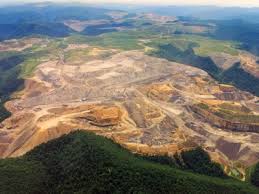
From this morning's Washington Post
comes a factual response to those who claim, against all evidence to the contrary, that the highly mechanized form of coal extraction known as "mountaintop removal" is a major employer in Appalachia (or anywhere else). As Justin Maxson, president of the
Mountain Association for Community Economic Development, explains, it's not.
Coal mining is part of the economy in Appalachia, but it hardly accounts for "most" of the region's employment, as The Post claimed.
In fact, coal mining jobs amount to only about 2 percent of employment in the central Appalachian region; the percentage is only slightly higher if you consider related employment. It does not account for anything approaching most of the employment. In Wise County, where The Post's story was set, there were 2,537 coal miners, or about 11 percent of total county employment, in 2004. That's fewer workers than hold jobs in retail trade (3,118).
Instead of inflating the importance of the Appalachian coal industry, coal counties need to face reality. It's time to diversify their economies, look at the facts and stop believing in a comfortable yet nonetheless fictional story of coal's overwhelming contribution to the region's well-being.
Justin Maxson,
The writer is president of the Mountain Association for Community Economic Development.
That's right; according to someone who lives in Appalachia and knows what he's talking about, coal mining accounts for only a small, if not miniscule, percentage of employment (2% in central Appalachia, 11% in Wise County) in the region. Of that, the specific form of mining known as "mountaintop removal" accounts for an even smaller share. And, as an added bonus, mountaintop removal coal mining seriously harms the environment - drinking water, wildlife, etc. - for the people who live there. As Jim Webb, a man whose Scots-Irish family roots go back generations in the Appalachian region, writes in his book
"Born Fighting":
The people from the outside showed up [in Appalachian coal country] with complicated contracts...asking for "rights" to mineral deposits they could not see, and soon they were treated to a sundering of their own earth as the mining companies ripped apart their way of life, so that after a time the only option was to go down into the hole and bring the Man his coal, or starve. The Man got his coal, and the profits it brought when he shipped it out. They got their wages, black lung, and the desecration of their land...Coal made this part of Appalachia a poverty-stricken basket case while the rest of the mountain region remained mired in isolation.
That pretty much sums it up.
 From this morning's Washington Post comes a factual response to those who claim, against all evidence to the contrary, that the highly mechanized form of coal extraction known as "mountaintop removal" is a major employer in Appalachia (or anywhere else). As Justin Maxson, president of the Mountain Association for Community Economic Development, explains, it's not.
From this morning's Washington Post comes a factual response to those who claim, against all evidence to the contrary, that the highly mechanized form of coal extraction known as "mountaintop removal" is a major employer in Appalachia (or anywhere else). As Justin Maxson, president of the Mountain Association for Community Economic Development, explains, it's not.
